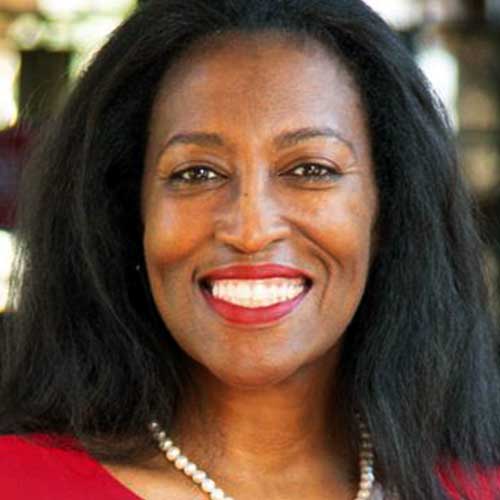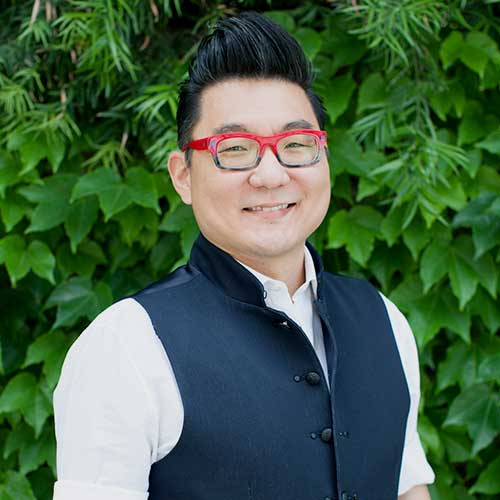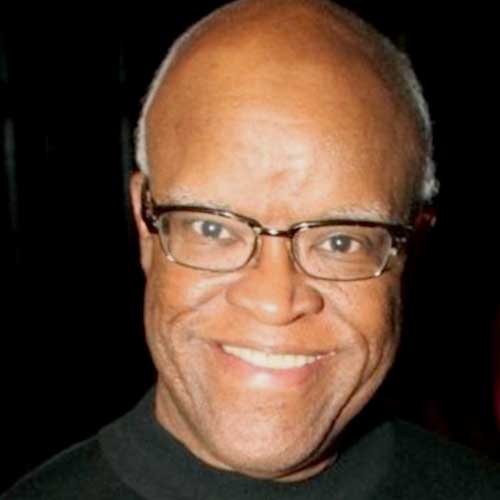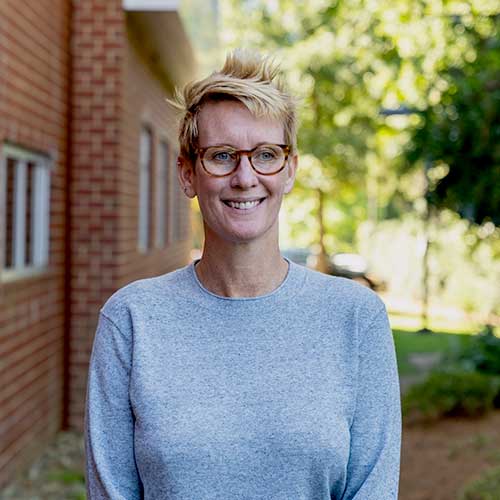Our
Founders
& Affiliates
Founders

Charlynn Small, PhD, LCP, CEDS-S
Dr. Small is a licensed clinical psychologist and Assistant Director for Health Promotion at the University of Richmond’s Counseling and Psychological Services (CAPS) in Virginia. She received her PhD from Howard University’s School of Education. She is a frequent speaker at national and international conferences and advocates for the awareness of eating disorders affecting Black women, persons of color, and other underrepresented groups. Dr. Small is President Appointee (2023-2025) of the Board of Directors of the International Association of Eating Disorders Professionals Foundation (iaedp™), a certified member and Approved Supervisor (CEDS-S) of iaedp™, the founding co-chair of the Foundation’s African American Eating Disorders Professionals (AAEDP) Committee, and served on the advisory board for the National Association of Anorexia Nervosa and Associated Disorders (ANAD). Dr. Small is the co-editor of “Treating Black Women with Eating Disorders: A Clinician’s Guide.”
Publications
- Treating Black Women with Eating Disorders: A Clinician’s Guide. Routledge, 2020.

Mazella Fuller, PhD, LCSW, CEDS
Dr. Fuller has an extensive background in dismantling systems of oppression, supervision, training, and curriculum development. She is a Clinical Associate on the staff of Counseling and Psychological Services (CAPS) for Duke University. Dr. Fuller graduated from Smith College for Social Work in Northampton, MA and completed her clinical training at the University of Massachusetts – Amherst. She is an integrative health coach, a certified member of the International Association of Eating Disorders Professionals Foundation (iaedp™) and completed the Mindfulness-Based Stress Reduction Program through Duke Integrative Medicine/Duke University Medical Center. She is the co-editor of “Treating Black Women with Eating Disorders: A Clinician’s Guide” and is the founding Co-Chair of the African American Eating Disorders Professionals (AAEDP) Committee of iaedp and a member of the Anorexia Nervosa and Associated Disorders (ANAD) Advisory Board.
Publications
- Treating Black Women with Eating Disorders: A Clinician’s Guide. Routledge, 2020.

Norman H. Kim, PhD
Dr. Kim completed his B.A. at Yale and his Ph.D. in Psychology at UCLA. His research and clinical interests include the neurobiology and social development of people with autism, the developmental course of bipolar disorder, and the treatment of anxiety disorders. In conjunction Norman has developed an expertise in treating and teaching about psychiatrically complex populations, and his primary areas of research and clinical interests are the application of a transdiagnostic framework for eating disorders, taking an evolutionary approach to shame and anxiety, and minority mental health. He is a regular national and international speaker, educator, and passionate advocate for eating disorder awareness and legislation with a particular focus on minority status and barriers to mental health care in marginalized communities. He is the founding co-chair of the Black, Indigenous, and People of Color Committee of IAEDP, on the inaugural Behavioral Health Taskforce for the Gay and Lesbian Medical Association, the co-chair of the Transcultural SIG for the Academy of Eating Disorders, serves on the Advisory Boards of Recovery Warriors, the Multi-Service Eating Disorders Association, Equip Behavioral Health, Spectrum CBT and Tikvah V’Chizuk, and served on the Board of Directors of the Eating Disorders Coalition and as an advisor to the Trevor Project. Norman was the co-founder of Reasons Eating Disorder Center, and is currently the Deputy Director of Ayana Therapy, a teletherapy app focused on providing culturally competent care to marginalized communities.
Publications
- Power of Virtual Care to Reach Marginalized Populations. Lightfully Behavioral Health, 2022.
- Eating Disorders and the Holidays. Eating Disorder Hope, 2020.
- In Solidarity With Our Black Patients. Reasons Eating Disorder Center, 2020.
- Cultural Context and Response to COVID-19 in People of Color with Eating Disorders. International Association of Eating Disorder Professionals, 2020.
- Conversations in Color: African American Eating Disorder Professionals. International Association of Eating Disorder Professionals, 2019.
- Of Papyrus and Pottery: Learning to Listen to the Marginalized Voice. Redefining Wellness: The Ultimate Diet Free Guide, 2019.
- Of Papyrus and Pottery: Learning to Listen to the Marginalized Voice. Eating Disorders Resource Catalogue, 2017.
- How to Address the Troubling Lack of Diversity Among Eating Disorder Professionals. National Eating Disorders Association, 2017.
- What’s Lobby Day? Reflections from a First Time Advocate. Eating Disorders Coalition, 2014.
- Loneliness and Eating Disorders in College Students. Eating Disorder Hope, 2014.
- Multiple pathways to smoking behaviors in adolescence: a longitudinal analysis. University of California, 2003.
- Continuity and change in the development of children with autism. UThe changing nervous system: Neurobehavioral consequences of early brain disorders, 1999.
- Continuity and change in the social competence of children with autism, Down syndrome, and developmental delays. Monographs of the society for research in child development, 1999.
- Infant precursors of theory of mind abilities in autism and developmental disabilities. Infant Behavior and Development, 1998.
Affiliates

Delbert R. Wigfall, MD
Dr. Wigfall was born in Charleston, South Carolina. He received a BA with honors in chemistry from Williams College and an MD from Emory University School of Medicine. He joined the Duke University faculty in 1987, where he is currently a professor in the Department of Pediatrics, Division of Pediatric Nephrology, and physician director of the Multicultural Resource Center for the Duke University School of Medicine.
Dr. Wigfall’s clinical interests are in autoimmune kidney diseases, transplantation, and hypertension. He has championed the inclusion of cultural competency and communication through the evolution and founding of the Multicultural Resource Center. Through his work he has helped to encourage candor and compassion in communication, and has fostered community in the School and Department. He has more actively engaged in discussions of racism, racial violence, disparities, and health inequities during the time of Covid-19 and recently completed the Racial Equity and Inclusion training, leading to certification as a Duke University Office of Diversity and Inclusion Trainer. His work in this area has earned him recognition by the Arnold P. Gold Foundation as the 2001 Humanism in Medicine Award recipient and inclusion as a new inductee in the Arnold P. Gold Humanism Honor Society in 2005. He is a past recipient of the Office of Institutional Equity “Equity, Diversity and Inclusion (EDI) Award” (2007), and the Samuel DuBois Cook Society Award (2016).

Rebecca Hurst, Ph.D.
Rebecca Hurst is a licensed psychologist and currently the Director of Counseling and Psychological Services (CAPS) at the University of Tulsa. She was formerly the Associate Director of Clinical Services at North Carolina State University, where she managed a clinical system providing a range of services to college students and engages in the training of mental health interns. She has worked in college mental health for over a decade and is committed to the struggle for liberatory mental health practice. Dr. Hurst received her Ph.D. in Counseling Psychology from the University of Oklahoma and completed an internship and postdoctoral residency at University Counseling Services at Virginia Commonwealth University. Dr. Hurst’s clinical interests include LGBTQIA+ issues, gender identity and its expression, cultural diversity, group therapy, and working with student athletes. She enjoys training, clinical supervision, and collaborative efforts to promote community.

Michael Iezzi, PhD
Dr. Iezzi is a counseling psychologist in private practice in Durham, NC. Prior to private practice, he worked in university counseling centers for more than a decade, including Duke University CAPS and the Texas Tech University Counseling Center. He completed a Masters Degree in Clinical Psychology at Millersville University, his PhD in Counseling Psychology at New Mexico State University and his internship training at the University of Missouri Counseling Center. His clinical interests include multiculturalism, relationship concerns, men and masculinity, and racial identity. He has held positions as a group therapy program coordinator, liaison to university athletic departments, and various leadership roles on diversity committees.
His journey towards racial equity began with a focus on white privilege and, currently, emphasizes a systemic view of racism. More specifically, Dr. Iezzi is particularly interested in helping other white people understand their role in perpetuating and benefiting from white supremacy, providing a framework for engaging with the emotions that result from racial equity work, and integrating the impact of white supremacy into current therapy models. Dr. Iezzi strives to create an egalitarian environment in his work.

